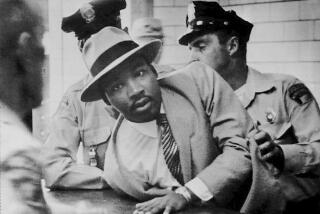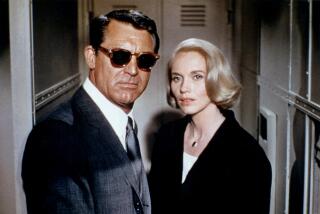Ulysses S. Grant seen in a new light
- Share via
When she was 10, Joan Waugh did what millions of eager readers have done over the decades since its 1936 publication: She read Margaret Mitchell’s “Gone With the Wind” again and again, admiring Scarlett O’Hara’s resourcefulness and pluck, swooning over a handsome scalawag named Rhett Butler and savoring the novel’s descriptions of the South’s valiant, doomed struggle against the hated Yankees.
Then Waugh grew up, physically and intellectually. She became a history professor at UCLA, writing books about 19th century America such as “Unsentimental Reformer: The Life of Josephine Shaw Lowell” (1998), a study of the social reformer and sister of Robert Gould Shaw, the white leader of the Massachusetts 54th Division and its African American soldiers whose exploits are dramatized in the 1989 film “Glory.”
The untold stories of the Civil War era captivated Waugh, including the great injustice done to President Ulysses S. Grant.
Caricatured as a corrupt politician and, before that, a lucky drunk who only prevailed in the Civil War because he didn’t mind seeing his men carved up in protracted battles, Grant has never had the modern recognition he deserves, Waugh says.
Now he just might, thanks to Waugh’s “U.S. Grant: American Hero, American Myth,” published by the University of North Carolina Press.
“I was stunned and inspired to read about him,” said Waugh, a Los Angeles native who recently visited Chicago. “In popular culture, he is forgotten. Even as people remember and honor Lincoln, they forget about Grant.”
Yet it was Grant who continued the work of emancipation, Waugh noted.
African American men received the constitutional right to vote during Grant’s administration.
If Lincoln was the bow, then Grant was the arrow.
“Grant was the first president of the new United States,” Waugh said. “Like Washington, he was more about action than words. He was an iconic symbol of stability. Yet the grotesque stereotype of Grant has been the one that historians accepted.”
How did Grant go from beloved hero to forgotten failure? That unfortunate and fascinating shift is at the heart of Waugh’s book, as she recounts the rise of the romantic myth extolling the South and its hero, Robert E. Lee, at the expense of Grant.
It was Grant, though, who rose from a storekeeper’s job in Galena, Ill., to lead the Union to victory, helping to end slavery and ensure a united nation.
That such a remarkable, accomplished man -- worlds removed from the stereotype of a backslapping bumbler with a hand in the till -- could be so badly maligned throughout the 20th century means, among other things, that we should always be willing to take a second look at what seems like irrefutable historical fact.
“Familiar figures can be seen anew through the lens of memory,” Waugh said.
“You’re looking at them through different perspectives. This book is really a social history of memory.”
Julia Keller is cultural critic at the Chicago Tribune.
More to Read
Sign up for our Book Club newsletter
Get the latest news, events and more from the Los Angeles Times Book Club, and help us get L.A. reading and talking.
You may occasionally receive promotional content from the Los Angeles Times.






